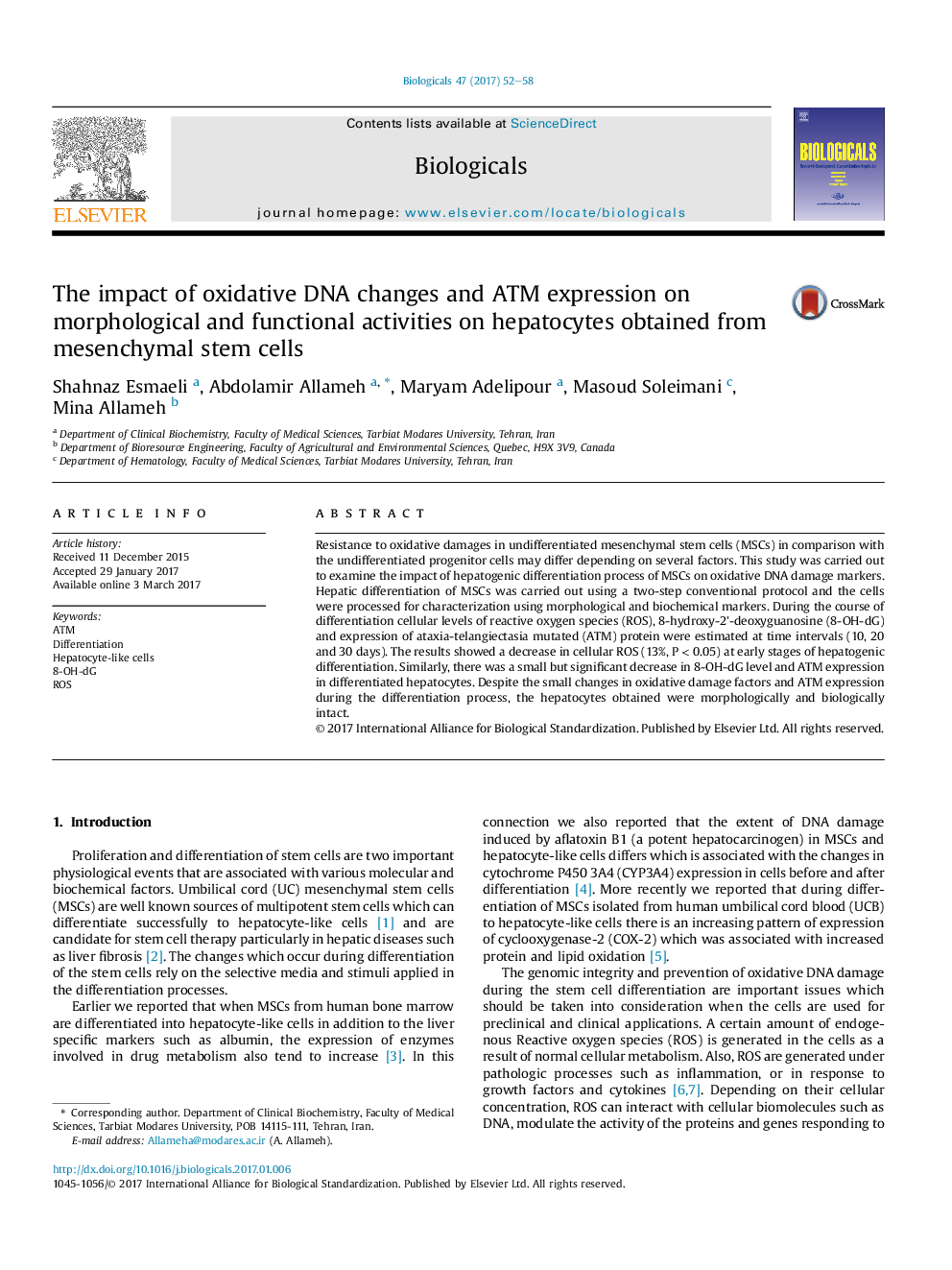| کد مقاله | کد نشریه | سال انتشار | مقاله انگلیسی | نسخه تمام متن |
|---|---|---|---|---|
| 5517000 | 1543037 | 2017 | 7 صفحه PDF | دانلود رایگان |

• Hepatogenic differentiation of MSCs is associated with changes in ROS and DNA adducts (8-OH-dG).
• Changes in ROS and 8-OH-dG is associated with changes in nuclear/cytoplasmic ATM expression.
• Hepatocytes derived from MSCs were normal, although there was signs of oxidative damage.
Resistance to oxidative damages in undifferentiated mesenchymal stem cells (MSCs) in comparison with the undifferentiated progenitor cells may differ depending on several factors. This study was carried out to examine the impact of hepatogenic differentiation process of MSCs on oxidative DNA damage markers. Hepatic differentiation of MSCs was carried out using a two-step conventional protocol and the cells were processed for characterization using morphological and biochemical markers. During the course of differentiation cellular levels of reactive oxygen species (ROS), 8-hydroxy-2'-deoxyguanosine (8-OH-dG) and expression of ataxia-telangiectasia mutated (ATM) protein were estimated at time intervals (10, 20 and 30 days). The results showed a decrease in cellular ROS (13%, P < 0.05) at early stages of hepatogenic differentiation. Similarly, there was a small but significant decrease in 8-OH-dG level and ATM expression in differentiated hepatocytes. Despite the small changes in oxidative damage factors and ATM expression during the differentiation process, the hepatocytes obtained were morphologically and biologically intact.
Journal: Biologicals - Volume 47, May 2017, Pages 52–58